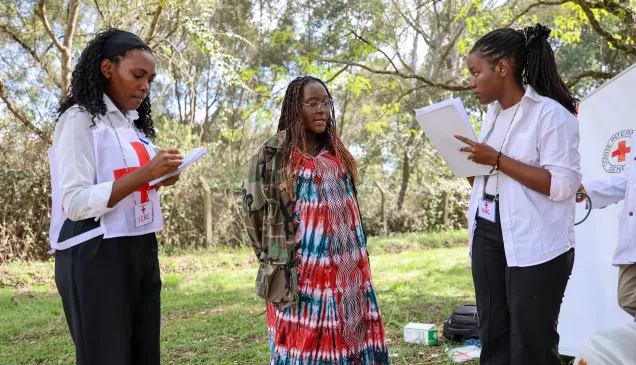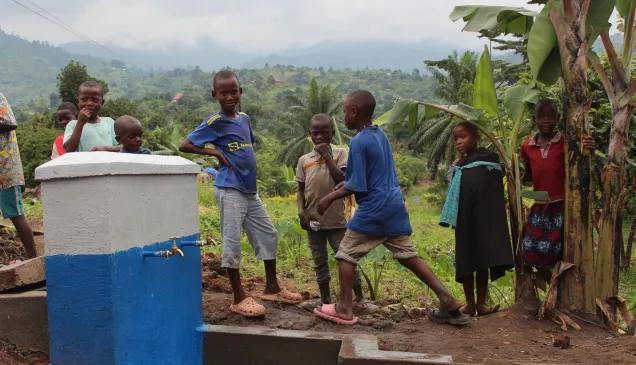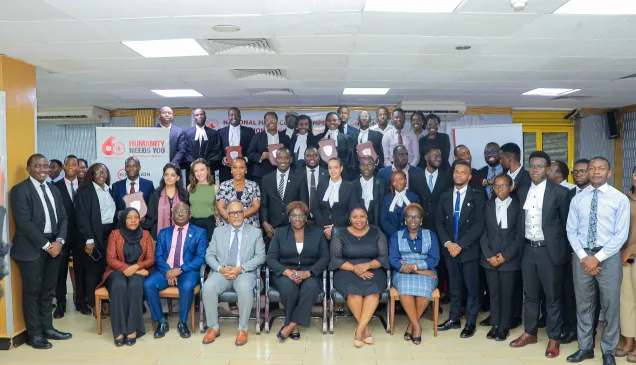Uganda: Helping families of the missing to find renewed purpose and meaning
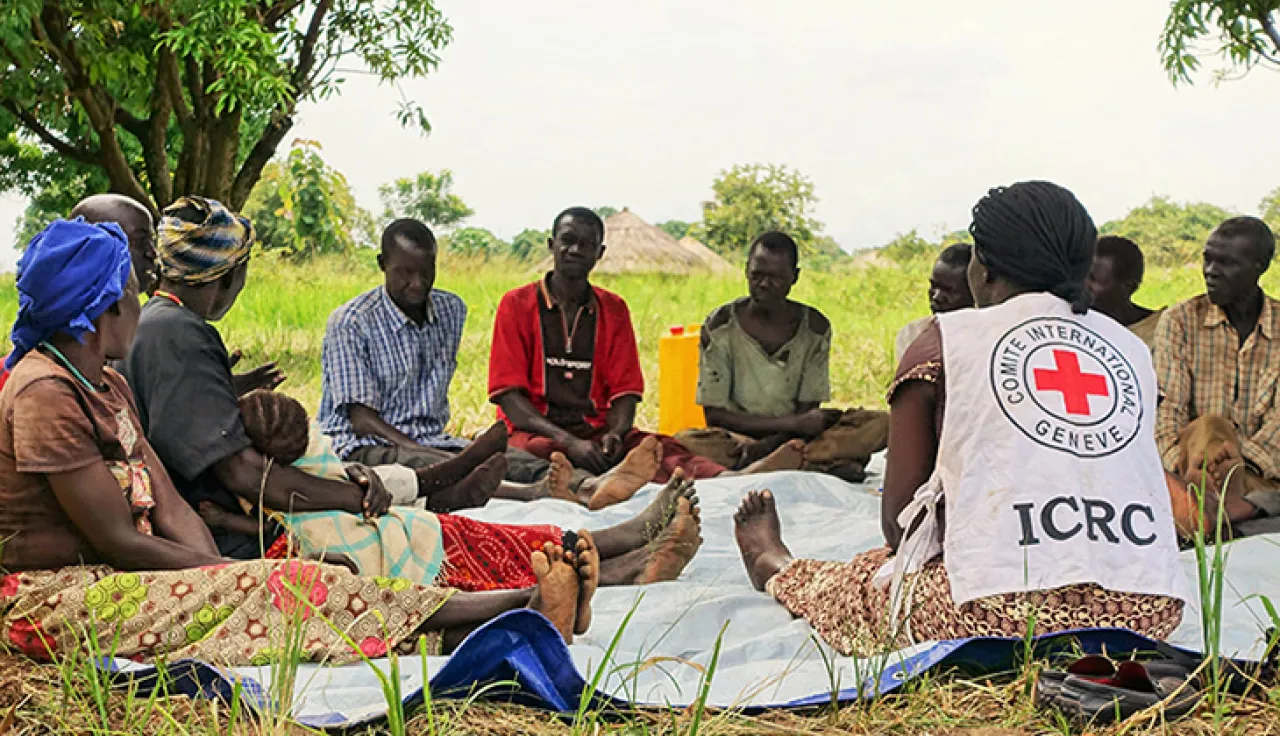
Between 1986 and 2006, some 75,000 people were abducted in northern Uganda.
The fate of several thousand remains unknown. The ICRC estimate that as many as 10,000 may still be missing. Their families live in uncertainty, unable to truly mourn, hoping they may return.
An ICRC programme has been helping these families cope with their pain and move forward. Monica Mukerjee, an ICRC Mental Health Delegate in Uganda, explains more about the programme.
How have people in these communities been psychologically and psychosocially affected by the disappearance of their loved ones?
Although their relatives disappeared years or decades ago, the pain is still very much present for some families. They feel their lives are "on hold". They cannot make important life decisions. They may be unable to work. They feel paralyzed.
Emotionally, families talk about having cwer cwiny, an Acholi (tribe in Northern Uganda) idiom describing how their heart bleeds out of sadness for their missing loved one. Some have par, a sickness of thoughts, from constantly thinking of the relative who disappeared. Others have unexplained physical pains and sleeping problems, linked to psychological distress. They may even feel haunted by spirits of their missing loved ones — as without a body, they are unable to properly perform funeral rites that would give peace to the departed soul of their relative.
To cope with such problems, some adopt habits or fall into states of mind that can have negative effects on their health and social life, such as alcoholism, reclusiveness, bitterness and irritability.
These consequences are often worsened by other difficulties. Elderly parents with missing children suffer enormous financial hardships because they have no one to care for them when they are too old to work. Disputes in families over land appear when the owner disappears. Families may even face stigmatization because the community suspects them of having been close to, or associated with armed groups.
All of these issues aggravate the pain families of the missing feel.
How does the ICRC provide emotional support?
The ICRC program in Northern Uganda is one of the first to provide psychosocial support to families with missing relatives in Africa. We use a similar framework globally called "accompaniment" to provide support to families of the missing, which aims to support these families by "walking alongside them" to help shoulder their pain and struggles.
Through this approach, we identify, train and coach local community members to be "accompaniers" who facilitate support groups with families of the missing. In these groups, members open up and discuss the challenges that stem from their relative's disappearance.
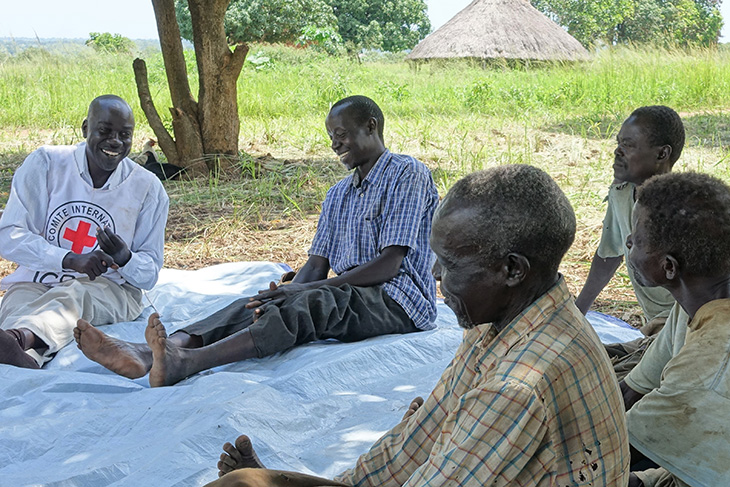
Mike Atube, a field officer with the Families of the Missing programme, leads a group session. CC BY-NC-ND / ICRC / Monica Mukerjee
Accompaniers also visit families at their homes to give individual support as needed and help with practical issues by connecting participants to additional help and services, such as health centres, local organizations or community elders.
How has the ICRC been able to adapt its approach to the cultural context?
In Northern Uganda, we select and train accompaniers who are from the same communities as the families of the missing. Our accompaniers are well-versed in Acholi culture and conduct their sessions entirely in Luo, the language spoken in Northern Uganda.
They create a space where members come together and support one another, which may include sharing Acholi rituals and practices.
For instance, many families struggle with how they can preserve the memory of their loved ones in their daily lives. In some groups, members have begun to use a mwoc of their loved ones. Mwoc are proverbs specific to each person that are repeated in happy and difficult times, and help families remember their relatives while giving them strength to deal with their everyday challenges.
How important is it to integrate psychosocial support with other elements of the response?
It is vital. Psychosocial support becomes powerful when it is anchored to ways of addressing practical issues.
In addition to giving emotional support, accompaniers actively help families resolve practical concerns they may have neglected due to their situations of stress, such as legal disputes or untreated medical issues.
What is the most important way in which people can help families of the missing to move forward with their lives?
Giving families a space to share feelings without judgment is an important starting point. It enables families to connect with others again, and through those relationships, they find renewed purpose and meaning in their lives.
Read more: on International Day of the Disappeared 2015

